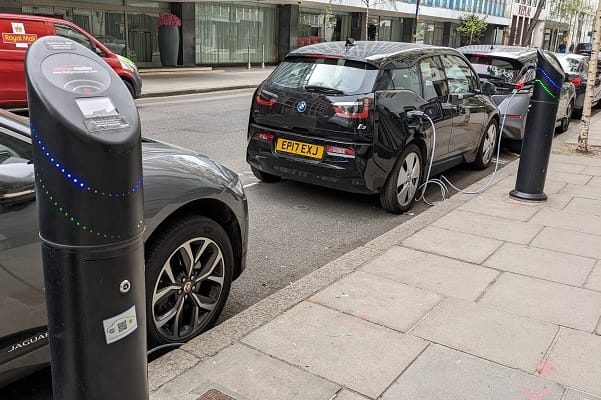Undeniably, the tax benefits of going electric for company cars are pretty impressive. On zero emissions cars, the tax rate is just 2% BIK and that’s guaranteed up to the end of the 2024/2025 tax year.
Even then the rates only go up to 3% in 2025/25, to 4% in 2026/27 and to 5% in 2027/28.
By comparison, the tax rate on the highest emissions categories of vehicles right now is 37%. So the savings are considerable.
We also often think of electric vehicles as being cheaper to run. After all, the cost of fuel is astronomical, right?
But with the rising prices of electricity, running an EV has increased in price too. There’s also the added inconvenience of charging if you drive long distances.
So when you take everything into account, do the tax savings outweigh the inconveniences?
Cost of Charging
Domestic charging costs vary. If you charge overnight at home and switch to special tariffs, you can get a full charge for as little as 6p per Kwh. The average EV battery has a capacity of 40kWh but it can range from 20 to 100!
The Mini Cooper electric, for example. Has a capacity of 28 and you’ll get around 115 miles out of it. So you could charge for under £2 on a special tariff. If you’re charging on a standard tariff, that could be anything from 30p to 35p per kWh so the cost of a charge rises to between and £8.40 and £9.80.
Let’s compare that with a new-ish petrol Mini Cooper model, from which you could expect to use around 10 litres of fuel to travel the same distance.
10 litres of fuel with an average £1.44/litre charge is £14.40.
So yes, charging at home is considerably more economical whether you’re on a special tariff or not.
But charging on public charge points is incredibly variable with costs from 20p right up to nearer 80p per kWh.
The fastest chargers are often pricier and there’s not much free charging available. So if you’re charging on rapid chargers, particularly on motorways, you could easily find it’s costing you as much per mile as it would be in a petrol car.
Convenience
If you drive long distances for work, we’ve got to make allowances for the time added to your journeys when you have to stop and charge.
In reality, higher battery capacity EVs like the Kia EV6 or higher end Teslas will probably be a requirements if you’re regularly driving over 100 miles each way to a meeting or other business engagement.
But even then, the infrastructure is hugely unreliable in some places. 1 in 5 of us in the UK is reluctant to go electric because of concerns about charge point availability. And some areas are sorely lacking behind others.
There’s no doubt it’s getting better. But if you find yourself needing to charge a car at a motorway services with a queue of 3 or 4 vehicles and only two chargers, you could be there for hours. There’s a cost to this.
So, should we all go electric?
If you’re looking at company cars, then the tax savings alone could be sufficient to make you go green. But perhaps not if you’re driving long distances as a part your work.
When we look beyond the pound signs though, we all know this movement to electric powered driving goes beyond financial savings. There’s also the not-so-small matter of tackling climate change.






Leave a Comment